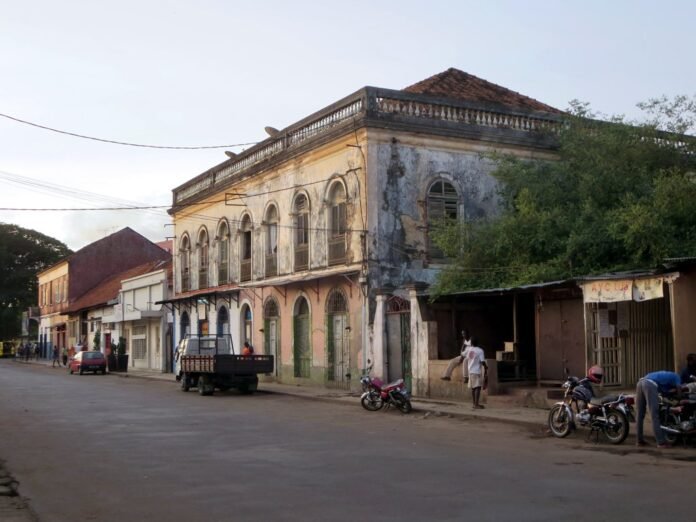Mauritius has a unique healthcare system where public healthcare is free and universally accessible to all residents, unlike many countries where public health insurance schemes dominate. This creates a distinct landscape for public versus private health coverage.
Public Health System in Mauritius
The public healthcare system is primarily government-funded through general taxation, meaning no direct insurance premiums or co-pays are charged to users when accessing public hospitals and clinics. It offers comprehensive basic healthcare services including outpatient visits, inpatient care, maternal health, emergency treatment, vaccinations, and preventive programs. This free access ensures universal coverage for all residents and nationals, regardless of income or employment status. However, public facilities may face issues like longer wait times, limited choice of specialists, and infrastructure constraints.
Importantly, Mauritius does not have a formal universal public health insurance scheme akin to social health insurance models seen elsewhere. Instead, the public system operates as a direct service provider funded by the government. Some mutual or employer-based schemes exist but tend to be limited in scope.
Private Health Insurance in Mauritius
In contrast, private health insurance is offered mostly by international insurers such as Allianz Care, William Russell, AXA, Bupa Global, and VUMI, as well as local companies like Mauritius Union Assurance (MUA) and SWAN for Life. Private insurance targets expatriates, wealthier locals, and those seeking access to private hospitals, faster care, and international coverage.
Private plans are premium-based and offer a wide range of benefits, including comprehensive inpatient and outpatient coverage, maternity care, dental and optical services, medical evacuation, repatriation, and specialist treatments. Coverage limits often reach up to several million USD annually, far exceeding the scope of public healthcare. Policies also typically provide features such as virtual doctor consultations, second medical opinions, and quick claims processing.
Key Differences
- Cost to Users: Public healthcare is free at the point of use, funded by taxes. Private insurance requires payment of premiums, which vary by plan tier, coverage, and age.
- Access and Facilities: Public system patients must use government hospitals and clinics, often facing longer waits and limited options. Private insurance grants access to private hospitals locally and internationally, with quicker, more personalized service.
- Scope of Coverage: Public care covers essential and emergency health services; private insurance offers more comprehensive and elective treatments, including advanced diagnostics and global care.
- Population Covered: Public healthcare is open to all residents and nationals with no enrollment or premiums. Private insurance is limited to those who can afford it or whose employers provide it, including expats.
Similarities
- Goal of Health Access: Both systems aim to ensure residents receive medical care, albeit through different mechanisms.
- Complementary Roles: Many residents rely on the public system for basic care but choose private insurance for supplementary or enhanced services.
- Involvement of Local Insurers: Both public mutual/employer schemes and private companies play roles in Mauritius’s health financing landscape, though private insurers dominate the voluntary market.
Top Public Health Insurance Options in Mauritius
Mauritius operates a unique healthcare model where the public health system is primarily government-funded and provides free access to essential medical services for all residents and nationals. Unlike many countries, Mauritius does not have a formal universal public health insurance scheme but instead delivers healthcare through publicly funded hospitals and clinics. Nonetheless, a few public or quasi-public insurance or health coverage schemes exist to complement this system.
Here are the top public or public-related health insurance options and schemes available in Mauritius:
1. Government-Funded Public Healthcare System(Website: https://www.govmu.org)
- Cost: Free at the point of use for all citizens and legal residents; funded by general taxation.
- Available Services/Coverage Features: Includes outpatient consultations, inpatient care, maternal and child health services, emergency care, vaccinations, and preventive health programs. Public hospitals also provide surgeries and specialist care but may have longer wait times.
- Open for All or Limited: Open universally to all residents and nationals.
- Core Financial Features: No premiums or co-payments; fully tax-funded system.
- Consumer Satisfaction Score: Generally positive for access and affordability; however, some dissatisfaction exists regarding wait times and infrastructure.
2. SICOM Health Insurance (Semi-Public)(Website: https://sicom.mu)
- Cost: Premiums vary depending on plan and coverage; relatively affordable.
- Available Services/Coverage Features: Offers health insurance packages covering hospitalization, outpatient treatments, maternity care, and diagnostic services.
- Open for All or Limited: Primarily serves local population, open to individuals and employers.
- Core Financial Features: Risk-pooling model with premiums collected to cover medical expenses; some cost-sharing may apply depending on plan.
- Consumer Satisfaction Score: Moderate; praised for local market knowledge but limited online transparency.
3. National Pensions and Insurance Scheme (NPIS) – Health Component(Website: https://www.swanforlife.com)
- Cost: Contributions deducted from salaries as part of social security.
- Available Services/Coverage Features: Provides social protection including limited healthcare benefits in case of illness or disability, complementing the public health system.
- Open for All or Limited: Mandatory for employed persons.
- Core Financial Features: Contribution-based, linked with social security benefits.
- Consumer Satisfaction Score: Limited specific data, but recognized as a basic safety net.
4. Employer-Based Mutual and Group Health Schemes(Website: https://www.mua.mu)
- Cost: Typically funded jointly by employer and employee contributions.
- Available Services/Coverage Features: Provides supplementary health coverage including outpatient care, private hospital stays, or specialized treatments not fully covered by public hospitals.
- Open for All or Limited: Limited to employees of participating companies or organizations.
- Core Financial Features: Contribution-based with negotiated benefits.
- Consumer Satisfaction Score: Varies widely depending on employer and scheme design; generally positive where available.
5. Social Welfare and Vulnerable Groups Support Programs(Website: https://www.maubank.mu)
- Cost: Free or highly subsidized for eligible low-income, elderly, or disabled persons.
- Available Services/Coverage Features: Includes access to medicines, home care support, and priority in public hospitals.
- Open for All or Limited: Restricted to vulnerable and socially disadvantaged groups.
- Core Financial Features: Funded by government social welfare budget.
- Consumer Satisfaction Score: Appreciated by beneficiaries; limited in scale.
Top Private Health Insurance Providers in Mauritius
Mauritius has a growing private health insurance market catering to expatriates, affluent locals, and those seeking faster access to private healthcare facilities with broader service coverage. The private health insurance options include both local insurers and international providers offering comprehensive plans. Below are the top private health insurance providers available in Mauritius, with details on their costs, coverage, accessibility, financial features, and consumer satisfaction.
1. Allianz Care(Website: https://www.allianzcare.com)
- Cost: Premiums vary by plan tier and age; typically range from USD 200 to 600+ monthly for comprehensive coverage.
- Available Services/Coverage Features: Covers inpatient and outpatient care, oncology, maternity, emergency evacuation, dental, optical, laser eye surgery, and preventive health.
- Open for All or Limited: Open globally, available to expats and locals.
- Core Financial Features: Offers multiple plan tiers with annual limits from USD 2.5 million to USD 5 million, deductible options, and co-pay structures.
- Consumer Satisfaction Score: High; praised for global network, fast claims processing, and customer service.
2. William Russell(Website: https://www.william-russell.com)
- Cost: Premiums generally range from USD 150 to 500 monthly depending on plan and coverage.
- Available Services/Coverage Features: Provides inpatient and outpatient care, maternity, chronic conditions management, and medical evacuation.
- Open for All or Limited: Available internationally, popular among expatriates.
- Core Financial Features: Flexible plans with annual limits up to USD 5 million, options to customize benefits and deductibles.
- Consumer Satisfaction Score: High; noted for excellent reimbursement rates and access to private clinics.
3. AXA Global Healthcare(Website: https://www.axaglobalhealthcare.com)
- Cost: Varies widely; starting from around USD 180 monthly for basic plans to over USD 600 for premium options.
- Available Services/Coverage Features: Comprehensive inpatient/outpatient care, maternity, chronic illness, dental, emergency evacuation, and virtual doctor services.
- Open for All or Limited: Open internationally with strong expat focus.
- Core Financial Features: Tiered plans offering annual limits from USD 1 million to USD 5 million+, with optional outpatient coverage.
- Consumer Satisfaction Score: Very good; known for 24/7 support and streamlined claims.
4. Bupa Global(Website: https://www.bupaglobal.com)
- Cost: Premiums start around USD 250 monthly, increasing with coverage level and age.
- Available Services/Coverage Features: Extensive coverage including major medical care, maternity, specialist consultations, chronic condition management, dental, and worldwide evacuation.
- Open for All or Limited: Available internationally, mainly for expats and wealthier locals.
- Core Financial Features: Four tiers with customizable deductibles and co-insurance; annual limits can reach USD 5 million.
- Consumer Satisfaction Score: High; strong reputation for quality care and comprehensive benefits.
5. VUMI (VIP Universal Medical Insurance)(Website: https://www.vumi.com)
- Cost: Premiums typically range from USD 150 to 450 monthly depending on the plan.
- Available Services/Coverage Features: Offers inpatient, maternity (after waiting period), dental (after waiting period), optical, evacuation, and preventive care.
- Open for All or Limited: Open internationally, often chosen by expats.
- Core Financial Features: Flexible plans with annual limits up to USD 5 million; waiting periods apply for maternity and dental.
- Consumer Satisfaction Score: Good; noted for plan flexibility and specialized expat focus.
READ MORE: Private and public health insurance of Russia (Make informed choices)


